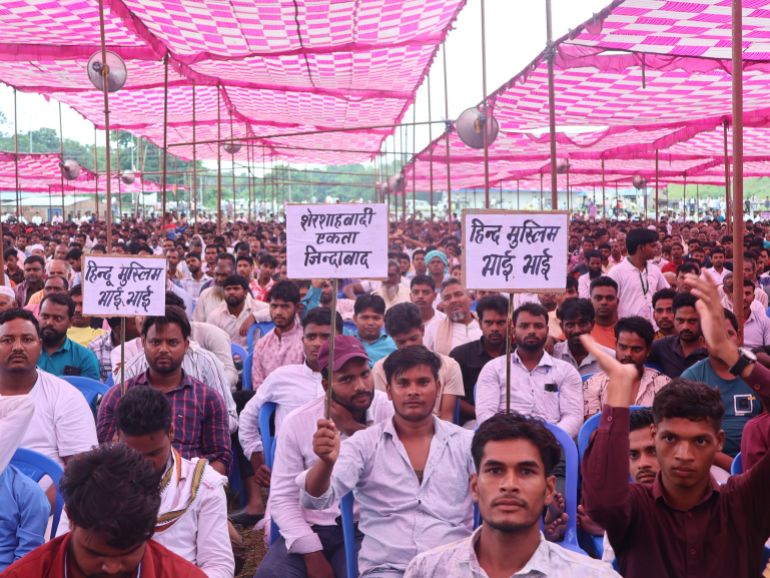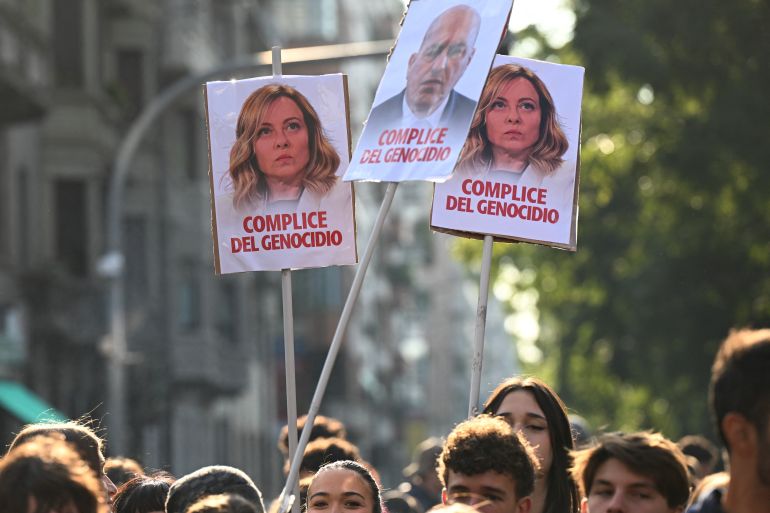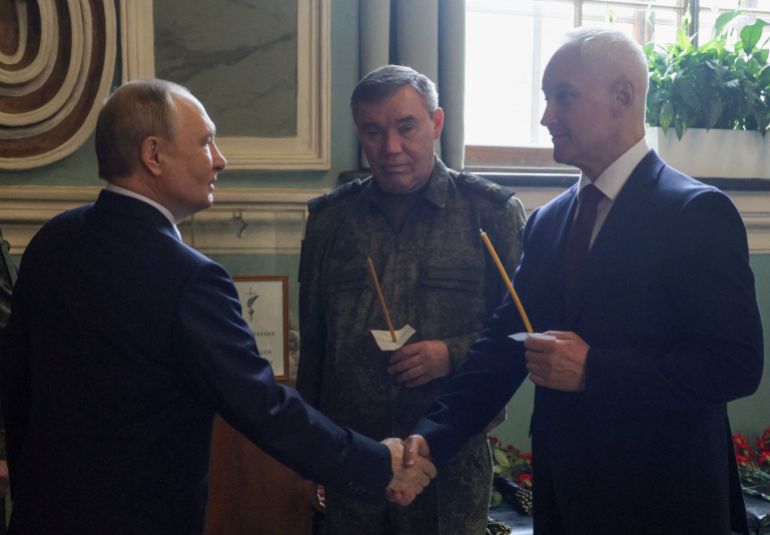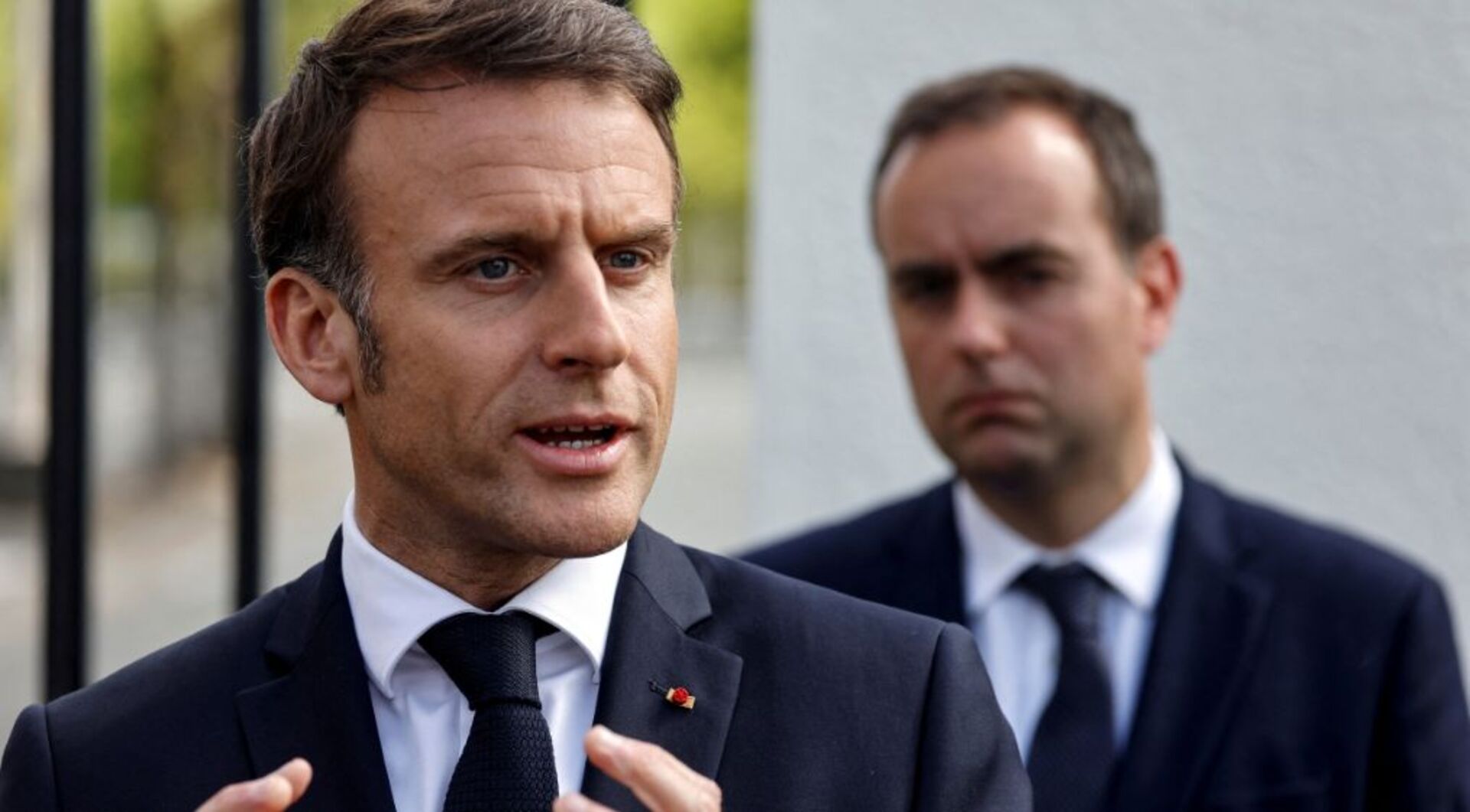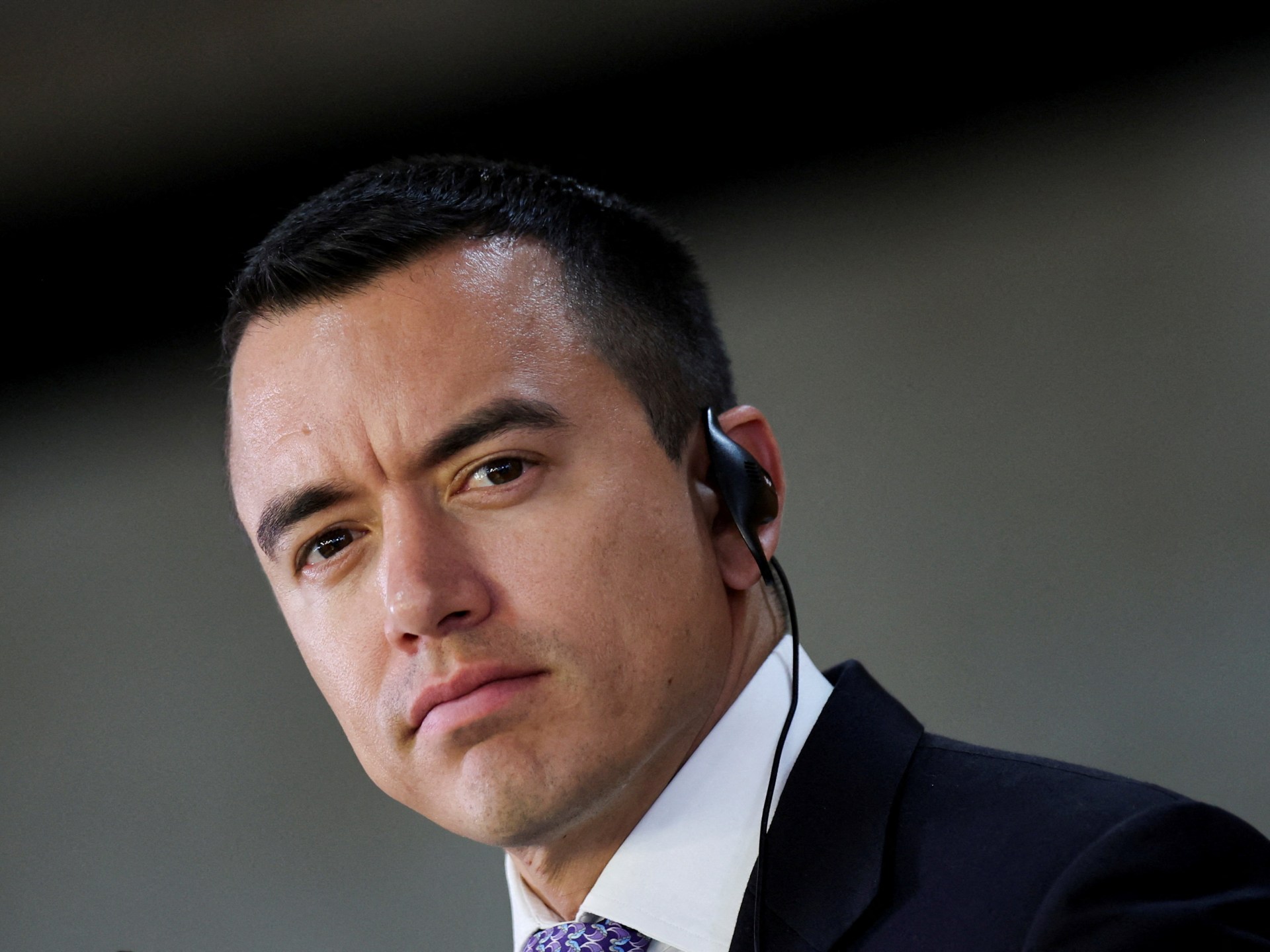Kishanganj/Katihar, India – More than a decade ago, when Mukhtar Alam* studied at a government school in Kishanganj, the only Muslim-majority district in eastern India’s Bihar state, he had Hindu friends.
Alam was especially close to one of them. The two would do their studies and school projects together. Alam would avoid meat when they ate together so as not to make his vegetarian friend uncomfortable.
But an incident two years ago created a rift in their friendship, which has not been bridged since.
Addressing a rally in Kishanganj, Jitanram Manjhi, a former chief minister of Bihar and a prominent ally of Prime Minister Narendra Modi’s Bharatiya Janata Party (BJP), said the Shershahbadi community of Muslims were “infiltrators” from Bangladesh, India’s neighbour in the east, where more than 91 percent of the population is Muslim and mainly speaks Bangla.
The term Shershahbadi is derived from the historical Shershahbad region, which includes areas in the neighbouring West Bengal state. The name Shershahbad, in turn, is believed to be derived from Sher Shah Suri, an Afghan king who defeated the mighty Mughals and briefly ruled over the modern regions of Bihar and Bengal (including Bangladesh) in the 16th century.
Unlike Hindi and its dialects, as well as Urdu, spoken widely across Bihar, the Shershahbadi Muslims speak a dialect of Bangla mixed with Urdu and Hindi words. They are often referred to as “Badia” (a likely short form of Shershahbadi) or “Bhatia”, which derives its origin from the local dialect “Bhato”, meaning going against the river’s stream, since the Shershahbadi Muslims are said to have migrated upstream of the Ganges River from Malda to Murshidabad in West Bengal state, and finally to the Seemanchal region in Bihar, India’s most impoverished state.
“We felt threatened [by Manjhi’s speech],” Alam, a Shershahbadi Muslim and graduate in business administration, told Al Jazeera.
Refusing to stay silent, he posted his condemnation on Facebook. Within minutes, a comment in Hindi popped up under his post: “You people are Bangladeshi infiltrators.”
It was his best friend.
“Reading that comment sent a shiver down my spine,” recalled the 30-year-old Alam, sitting under the thatched roof of a primary school he runs. “The comment created a rift between us. We developed trust issues and lost our brotherhood, our friendship.”
Alam is one of 1.3 million Shershahbadi Muslims in Bihar, according to a “caste census” published by the state government in 2023, and most of them live in Kishanganj and Katihar districts.
As Bihar, India’s third-most populous state, heads towards crucial elections to its legislature that could impact national politics, it is these districts that have emerged as the focus of a high-pitched BJP campaign against supposed “Bangladeshi infiltrators”.
Why Shershahbadi Muslims?
As India celebrated its Independence Day on August 15 last month, Prime Minister Modi addressed the nation from the ramparts of the Mughal-era Red Fort in New Delhi, in which he announced the formation of a “high-powered demography mission” to find the infiltrators.
“No country can hand itself over to infiltrators. No nation in the world does so – how then can we allow India to do so?” Modi said, without specifying who those infiltrators were. He added that through the mission, “the severe crisis now looming” over the country will be addressed in a “deliberate and time-bound manner”. His government has not yet provided details on the workings of the mission.
Hindu right-wing groups in India often use the term “Bangladeshi infiltrator” to target Bangla-speaking Muslims mainly in the states of Bihar, West Bengal and Assam. In Assam, where Modi’s BJP has been in power since 2016, the state government has been running a campaign against Bangla-speaking Muslims, labelling them “outsiders” and accusing them of trying to alter the regional demography.
Nearly a third of Assam’s population is Muslim – the highest among Indian states. Only the federally run territories of Indian-administered Kashmir in the north and the Lakshadweep islands in the Arabian Sea have a higher Muslim percentage than Assam.
In Bihar, the Muslim population stands at 17 million, or nearly 17 percent of its total population of 104 million, according to India’s last census conducted in 2011. About 28.3 percent of those Muslims are concentrated in what is commonly referred to as Seemanchal (“frontier region” in Hindi), comprising Kishanganj, Katihar, Araria and Purnia districts. Katihar, Kishanganj and Purnia share their borders with West Bengal state, while the Bangladesh border is just a few kilometres from Seemanchal.

Bihar will hold its state assembly election in two phases on November 6 and November 11, with the results to be announced on November 14.
The BJP has never formed a government on its own in the key northern state, ruling it for a good part of the past 20 years in coalition with a regional ally. Critics accuse it of now using the “Bangladeshi infiltrator” pitch in Seemanchal to polarise the region’s voters on religious and linguistic lines.
In the last two years, Alam says his worries have increased manifold as Modi himself leads the BJP’s charge against his community.
“Those indulging in vote bank politics have turned Purnia and Seemanchal into a hub of illegal infiltration, putting the security of this area at risk,” Modi had said last year while campaigning in Purnia for the general elections.
He repeated his stance in the BJP’s election rallies in several districts of Bihar this year.
“Today, a huge demographic crisis has happened in Seemanchal and across eastern India because of infiltrators,” Modi said in Purnia last week, promising to “throw every single infiltrator out”.
That drive is already under way in other parts of India.
‘Demons have come from Bangladesh’
Authorities in several BJP-ruled states have been cracking down on allegedly “illegal” Bangladeshi nationals, with hundreds of Bengali-speaking people deported from Assam, Gujarat, Maharashtra and New Delhi – despite most of them holding valid documents proving their Indian citizenship. Critics say the drive targets Muslims.
Earlier this month, the BJP’s Assam unit posted an AI-generated video on social media, titled “Assam Without BJP”. The 30-second clip claims the Muslim population in the state will soon be 90 percent and they will take over all public spaces – tea gardens, airports, stadiums, allow “illegal” Muslim migrants to enter the state through barbed wire, and legalise eating beef. Many Hindus from the privileged castes are vegetarians, and the sale or consumption of beef is banned in most Indian states.
However, for the Muslims of Seemanchal, the bogey of a Bangladeshi “infiltrator” is a familiar rhetoric, as it feeds on a high concentration of the community in the region and its proximity with Bangladesh.
Seemanchal residents say the BJP has been trying for years to turn the region into a “Hindutva laboratory” – a term often associated with Modi’s home state of Gujarat after he became its chief minister in December 2001. Hindutva, literally meaning Hinduness, is a term used widely in India to describe the BJP’s supremacist politics. Barely a couple of months after Modi assumed office, nearly 2,000 Muslims were killed in one of the worst massacres in modern India.
“Whenever any Hindu majoritarian leader visits Seemanchal, we fear about the comments he will make against us and the aftermath of it,” Alam told Al Jazeera.

Last month, federal Minister of Textiles and Bihar-based BJP leader Giriraj Singh was also in Purnia, where he said at a rally: “Many demons have come from Bangladesh; we have to kill those demons.”
In October last year, Singh had organised a “Hindu Pride March” in Seemanchal and the neighbouring Bhagalpur district, which also has a sizeable Muslim population. During the march, he repeatedly invoked Bangladeshi infiltration as well as other contentious topics targeting Muslims, including the issue of Rohingya refugees in India, and “love jihad” – a conspiracy theory propagated by Hindu right-wing groups that accuses Muslim men of luring Hindu women into relationships or marriages to convert them to Islam.
“If these Badias [Shershahbadis], infiltrators, and Muslims slap us once, we will unite and slap them a thousand times,” Singh told his supporters during last year’s rally in Kishanganj as the crowd cheered.
Speaking to Al Jazeera, BJP legislator Haribhushan Thakur defended his party’s campaign against the Shershahbadi Muslims in Bihar.
“It has nothing to do with polarisation or elections. It is a fact that the Muslim population is rising in Seemanchal due to infiltration, so necessary steps must be taken,” he said. “If infiltration is not stopped, in the coming 20-25 years, Seemanchal will become Bangladesh.”
Pushpendra, a former professor of social work at the Tata Institute of Social Studies in Mumbai, who goes by a single name, believes the BJP’s polarisation tactic will have a limited effect in Seemanchal.
“The BJP had raked the [Bangladeshi] infiltrator issue in the 2024 Jharkhand state assembly election as well, but it did not work, as the allegation had no substance,” he told Al Jazeera, referring to the tribal-dominated state neighbouring Bihar.
“The same thing will happen in Bihar because Bangladeshi infiltration is not there in Seemanchal. And how will it even be? Seemanchal does not share a border with Bangladesh.”
Decades-old campaign
In India, the drive against Bangla-speaking Muslims, accusing them of being Bangladeshi infiltrators, first began in Assam in the late 1970s, after a local student group hit the streets, calling for their removal. As a result, thousands of Muslims were either expelled from the country or declared “doubtful” citizens, putting their legal status in suspension and making them vulnerable to persecution.
It wasn’t long before the movement reached Bihar, where the issue was first raised by the Akhil Bharatiya Vidyarthi Parishad (ABVP), the student wing of far-right Rashtriya Swayamsevak Sangh (RSS). Born in 1925, the RSS, in its early days, at times drew inspiration from European fascist parties, and is the BJP’s ideological mentor. Its stated aim is to turn a constitutionally secular India into an ethnic Hindu state. The organisation runs thousands of chapters across India and counts Modi and other top BJP leaders as its lifelong members.
In the early 1980s, the ABVP claimed there were 20,000 Bangladeshis in Seemanchal, who got their names added to the local voter list. The RSS-led student group asked the authorities to review the list – similar to an exercise conducted in Assam, home to millions of Bengali-speaking Muslims whose ancestors migrated from Bangladesh over the decades.
The Election Commission of India accepted the ABVP’s demands in 1983, and nearly 6,000 Muslims were served notice by the electoral body to prove their citizenship – all of them belonging to the Shershahbadi community.
“They were asked to produce their land ownership documents. We organised a camp, collected documents and took a delegation to the state capital, Patna,” recalled septuagenarian Jahangir Alam, then a young activist who fought against the ABVP’s drive by presenting the relevant documents of the accused to the authority. The counterdrive succeeded, and not a single citizenship was cancelled.
“The entire episode was orchestrated by the ABVP,” Jahangir told Al Jazeera.
The same campaign has seen a revival in Seemanchal, with several BJP leaders demanding an Assam-like National Register of Citizens (NRC) drive in Seemanchal. The NRC is a database designed to include the names of all Indian citizens. Its main objective is to identify and remove undocumented or “illegal” migrants.
In Assam, the NRC process was completed in 2019 with the publication of a list that excluded nearly two million people, labelling them as non-citizens. Modi’s government has repeatedly said it wants a nationwide rollout of the NRC.
“The entire demography in Katihar, Kishanganj, Araria, Purnia and Bhagalpur has changed due to Bangladeshi infiltrators,” BJP parliamentarian Nishikant Dubey said during a speech in parliament in 2023.
“I request the government to implement NRC to drive all Bangladeshis out,” he added.
Akbar Imam*, a resident of Katihar’s Shershahbadi-dominated Jangla Tal village, told Al Jazeera the Hindus in his village were already discussing the prospects of grabbing the properties of Muslims found to be alleged Bangladeshi infiltrators.
“When NRC came up in Assam, there were murmurs among Hindus about who will grab which Muslim’s house and other properties when we are thrown out,” said Imam, a 46-year-old farmer, at a tea stall over the embankment of the Ganges River in Katihar’s Amdabad. “We have to be ready for everything, but it would be difficult to gather old land documents to prove our citizenship.”
‘Normalisation of communal segregation’
Recently, the Election Commission of India conducted a controversial revision of the voter list in Bihar, giving the BJP a new salvo to attack Muslims in Seemanchal. Called the Special Intensive Revision (SIR), the exercise, affecting nearly 80 million voters in the state, involved strict documentation requirements from citizens to be included as a voter. The move triggered criticism that it was a government ploy to exclude Muslims and other vulnerable groups from the voter list in a state the BJP desperately wants to win.
“Kishanganj saw a 10-fold increase in the application of residential certificates in only the first seven days [of the SIR exercise]. This means Bangladeshis might be trying to infiltrate,” Bihar’s Deputy Chief Minister Choudhary told reporters in July when the exercise was on.

The Election Commission of India published Bihar’s final electoral roll on September 30, removing nearly 6 percent of 80 million voters across Bihar. Kishanganj, the district with nearly 70 percent Muslims, saw the second-highest deletion rate at 9.7 percent, while the total removal of voters across Seemanchal was about 7.4 percent. Gopalganj, the home district of Lalu Prasad Yadav, Bihar’s former chief minister and founder of the BJP’s main rival party in the state, saw the largest number of voter deletions.
In two news conferences on Sunday and Monday, India’s Chief Election Commissioner Gyanesh Kumar was repeatedly asked about the number of “foreign voters” detected and removed from the electoral rolls – the ploy behind the SIR exercise.
“The main reasons for deleting names were [that] some were dead, some did not qualify as citizens of India, some were enrolled multiple times, and some had shifted from Bihar,” he said. The poll panel later said that if any political party or person feels that an eligible voter’s name has been left out, they can file a claim or objection.
Akbar, a Shershahbadi Muslim in Kishanganj, has made it to the list. He told Al Jazeera he was not scared of the SIR process, since he had the required documents. “Thankfully, we have all the proof. Those who are targeted often prepare a strong defence,” he said.
Academic Pushpendra said the BJP’s drive to paint Shershahbadi Muslims as Bangladeshi infiltrators is intended for electoral gains beyond the Seemanchal region.
“BJP’s vilification of Shershahabadi Muslims is not to gain only in Seemanchal. They know it will not benefit them much in Seemanchal [given the high Muslim population]. Through the demonisation of Seemanchal Muslims, they are trying to polarise Hindus in the rest of Bihar so as to win more seats in the election,” he told Al Jazeera.
‘State of anxiety and uncertainty’
Meanwhile, the BJP’s campaign against Shershahbadi Muslims has also had its social effect. Educational institutions run by Muslims in Kishanganj, for example, are seeing a reduction in the enrolment of Hindu students.
“Today, hardly any Hindu family sends their children to Muslim-managed schools,” Tafheem Rahman, who has been running a private school in Kishanganj for a decade, told Al Jazeera.
Rahman said when he started his school a decade ago, about 16 percent of the students were Hindus. Now, it’s just 2 percent.
“In fact, even affluent Muslim families are opting out. This quiet exodus from shared educational spaces reflects a more dangerous shift – a normalisation of communal segregation in everyday life, shaped and deepened by electoral politics,” he added.

A similar trend is being seen in the region’s health sector.
“Hindu patients are hesitant to visit a hospital run by Muslims, especially Shershahbadis,” says Azad Alam, a Shershahbadi Muslim who owns a private hospital in Kishanganj. “Even medical associations rarely stand for Muslim doctors when they need support.”
Yet, many Hindus Al Jazeera talked to in the Seemanchal region say they do not believe in such segregation along religious lines.
“If a Hindu in Kishanganj thinks he should not go to a Muslim doctor or a Muslim-owned school, it is wrong. Kishanganj is a Muslim-majority district; it would be impossible for Hindu businesses to survive without Muslims. Ninety percent of my customers are Muslims. And if I need a doctor, I look for a good doctor first, not the doctor’s religion,” said Ajay Kumar Choudhary, a 49-year-old washerman.
But Amrinder Baghi, a 62-year-old lawyer in Katihar who has been associated with the BJP for decades, said he believes “illegal” Muslims have entered the country, and that the government should act on it.
“I believe that if someone enters a country illegally, it is the complete responsibility of the government. For example, if someone enters my house, it means either I am weak and being overpowered, or I am strong but asleep,” Baghi told Al Jazeera.
Such a polarised environment demoralises the community, says Adil Hossain, a professor of sociology at the Azim Premji University in the southern city of Bengaluru.
“Seemanchal has a development problem, but there is a concerted attempt to frame it as a security issue by raising the bogey of illegal infiltration. This is pushing people into a state of anxiety and uncertainty, which is the biggest hindrance to them realising their potential as citizens,” Hossain told Al Jazeera.
Back in Kishanganj, Alam is preoccupied with the thoughts of the BJP campaign against Muslims in the run-up to the crucial polls.
“Every time politicians make comments on Shershahbadi Muslims, we must give clarification that we are not infiltrators. An atmosphere of fear is being created in our community,” he says in a trembling voice, as his eyes wander towards the cloudy sky.
